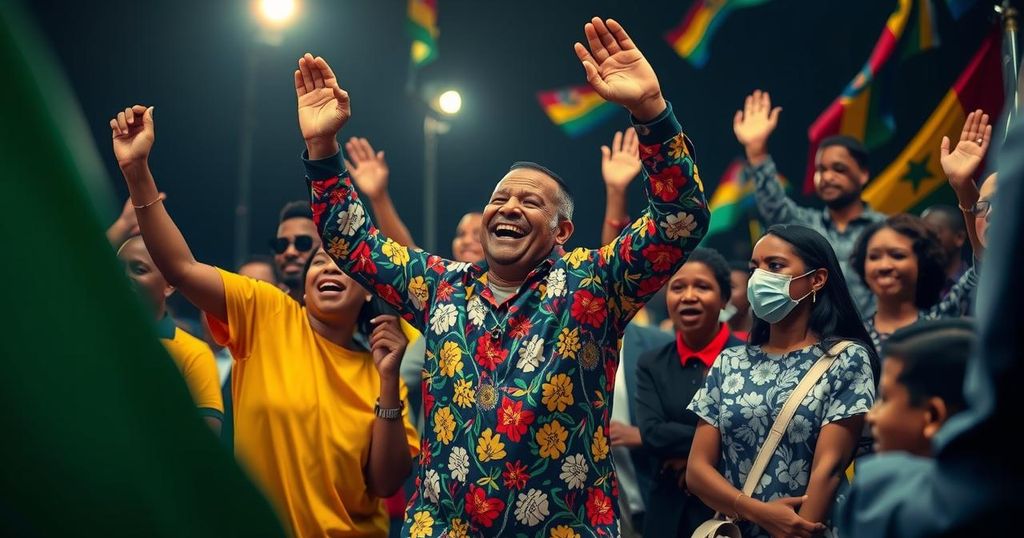Mauritius Opposition Coalition Achieves Landslide Election Victory

Mauritius’ opposition alliance has achieved a landslide victory in the recent elections, winning all parliamentary seats and prompting a leadership change as Navin Ramgoolam returns as Prime Minister. Prime Minister Pravind Jugnauth conceded defeat amidst corruption allegations against his government, marking a pivotal shift in the nation’s political landscape.
In a decisive political shift, Mauritius’ opposition coalition, led by the Alliance for Change, has emerged victorious in the latest national elections, securing all available seats in the parliament. This monumental win symbolizes a significant rejection of the incumbent government, headed by Prime Minister Pravind Jugnauth. Initial results from the voting indicated that the ruling Militant Socialist Movement coalition failed to win any of the 62 contested seats. Prime Minister Jugnauth acknowledged his coalition’s loss and recognized the electorate’s desire for change, stating, “The population has decided to choose another team. I wish good luck to the country”. With the results confirming their dominance across all 21 constituencies of the nation, the opposition’s victory also facilitates the return of Navin Ramgoolam to the position of Prime Minister, a role he has previously held in two separate tenures. The elections saw the engagement of over one million registered voters, marking the twelfth general election since Mauritius gained independence from the United Kingdom in 1968. While official results are still pending for two parliamentary seats from Rodrigues Island, the opposition has already been declared the winner of all 60 announced seats, projecting a new political era in Mauritius. Mauritius is recognized for its stable democracy and resilient economy, sustained through robust sectors such as finance, tourism, and agriculture. The adverse developmental impacts stemming from corruption allegations against the prior administration have galvanized public support for the opposition, altering the political landscape.
Mauritius, an island nation located in the Indian Ocean, is celebrated for its enduring democratic stability and economic growth since its independence in 1968. The recent elections signify not just a routine democratic process but a critical juncture resulting from widespread dissatisfaction with the governing coalition, primarily influenced by allegations of corruption involving senior officials. The Alliance for Change coalition’s triumph reinstates Navin Ramgoolam, a seasoned political figure, to the prime ministerial office, which he previously held through two non-consecutive terms between 1995 and 2014.
The resounding victory of Mauritius’ opposition coalition reflects a clear mandate for change from the electorate, emphasizing the significance of accountability and governance in a democratic society. With Navin Ramgoolam’s return to leadership, the nation stands at the threshold of potential policy reform and recovery of public trust, amidst the backdrop of economic stability and democratic values that Mauritius has cultivated over decades.
Original Source: apnews.com






